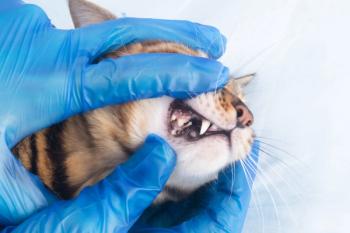
Journal Scan: Current understanding of feline epilepsy, diagnostic testing, and treatment
An overview of our current understanding of feline epilepsy, including diagnostic testing and treatment.Why they did itThere is a lack of scientific literature about epilepsy in cats, and much of the terminology as well as diagnostic and treatment recommendations have been extrapolated from experience with dogs and people. This article reviews the available literature and provides an overview of our current understanding of feline epilepsy, including diagnostic testing and treatment.Overview
An overview of our current understanding of feline epilepsy, including diagnostic testing and treatment.
Why they did it
There is a lack of scientific literature about epilepsy in cats, and much of the terminology as well as diagnostic and treatment recommendations have been extrapolated from experience with dogs and people. This article reviews the available literature and provides an overview of our current understanding of feline epilepsy, including diagnostic testing and treatment.
Overview
Epilepsy has become a catchall term used to describe any sudden neuronal event; however, in veterinary medicine, we lack the diagnostic testing (electroencephalogram) required to definitively diagnose epilepsy.
Etiologic classification of epilepsy in cats:
Idiopathic (primary)
No underlying brain lesion is present
Symptomatic (secondary)
Implies the presence of an underlying brain lesion or disorder
Probable symptomatic (cryptogenic)
Occurs as a result of brain lesions that cannot be identified (e.g. post-anesthetic seizures)
Reactive
Occurs as a result of a toxic or metabolic cause
The characteristics of epilepsy in cats
The authors note that epileptic seizures in cats are often focal complex seizures with or without generalization, and clinical signs can include drooling, facial twitching, hypersalivation, mydriasis, tremors, running, urination, and defecation. In the past, cats that experienced focal seizures were thought to have secondary epilepsy due to an underlying brain lesion, but studies have shown that both focal and generalized seizures may occur in cats with primary, or idiopathic, epilepsy as well.
Unlike idiopathic epilepsy in dogs, there is no evidence at this time of a genetic origin for idiopathic epilepsy in cats. The age of onset of idiopathic epilepsy appears to be more likely in younger versus older cats. However, because considerable overlap among age groups has been reported, age of onset is of little diagnostic utility.
Seizures due to idiopathic epilepsy maybe more likely to occur during periods of rest because of “an increase in cortical neuronal synchronization during sleep,” which decreases the seizure threshold.
A definitive diagnosis of idiopathic epilepsy requires exclusion of all other possible causes of epilepsy. However, identification of a cause of secondary epilepsy can be frustrating, especially in cases of incomplete work-up, equivocal test results, or patients with more than one epileptogenic condition.
Making the diagnosis
In addition to the signalment, detailed history, and evaluation of the timing and frequency of the seizures, thorough physical and neurologic examinations will be required in these cases. The authors also point out that normal findings on a neurologic examination do not rule out the possibility of a brain lesion.
Blood pressure testing, a complete blood count, a serum chemistry profile, a urinalysis, and thyroid testing will be required to look for metabolic or endocrine derangements, which may provide evidence of an underlying disease process. Interestingly, the authors note that feline leukemia virus, feline immunodeficiency virus, feline infectious peritonitis, and toxoplasmosis testing are of limited utility as studies have demonstrated that these infections are rarely the cause of primary brain disorders.
When a primary brain lesion is suspected or other noninvasive tests have proven inconclusive, magnetic resonance imaging and cerebrospinal fluid analysis should be considered.
Hippocampal necrosis as a cause of feline epilepsy
There is data to suggest that hippocampal lesions may cause seizures in cats. Cats with this type of lesion may develop acute cluster seizures with evidence of salivation and aggression. Necrosis in this area may be a result of an inflammatory, a neoplastic, a vascular, or a toxic event. Hippocampal necrosis is currently being studied as a form of feline temporal lobe epilepsy.
Epilepsy treatment in cats
There is currently no consensus as to when to begin antiepileptic drug therapy. Recent literature supports early intervention with phenobarbital as it may lead to better outcomes, but treatment should be considered on an individual basis. Risks of therapy, seizure severity and frequency, as well as owner compliance and monitoring will need to be considered. Phenobarbital is the antiepileptic drug used most often, but there are no high-evidence studies evaluating routine use of antiepileptic drugs in cats at this time.
Overall, the authors note that most studies suggest a good outcome for cats with idiopathic epilepsy treated with phenobarbital, although there are cases in which cats may be refractory to therapy.
Pakozdy A, Halasz P, Klang A. Epilepsy in cats: theory and practice. J Vet Intern Med 2014;28:255-263.
Link to article:
Newsletter
From exam room tips to practice management insights, get trusted veterinary news delivered straight to your inbox—subscribe to dvm360.



